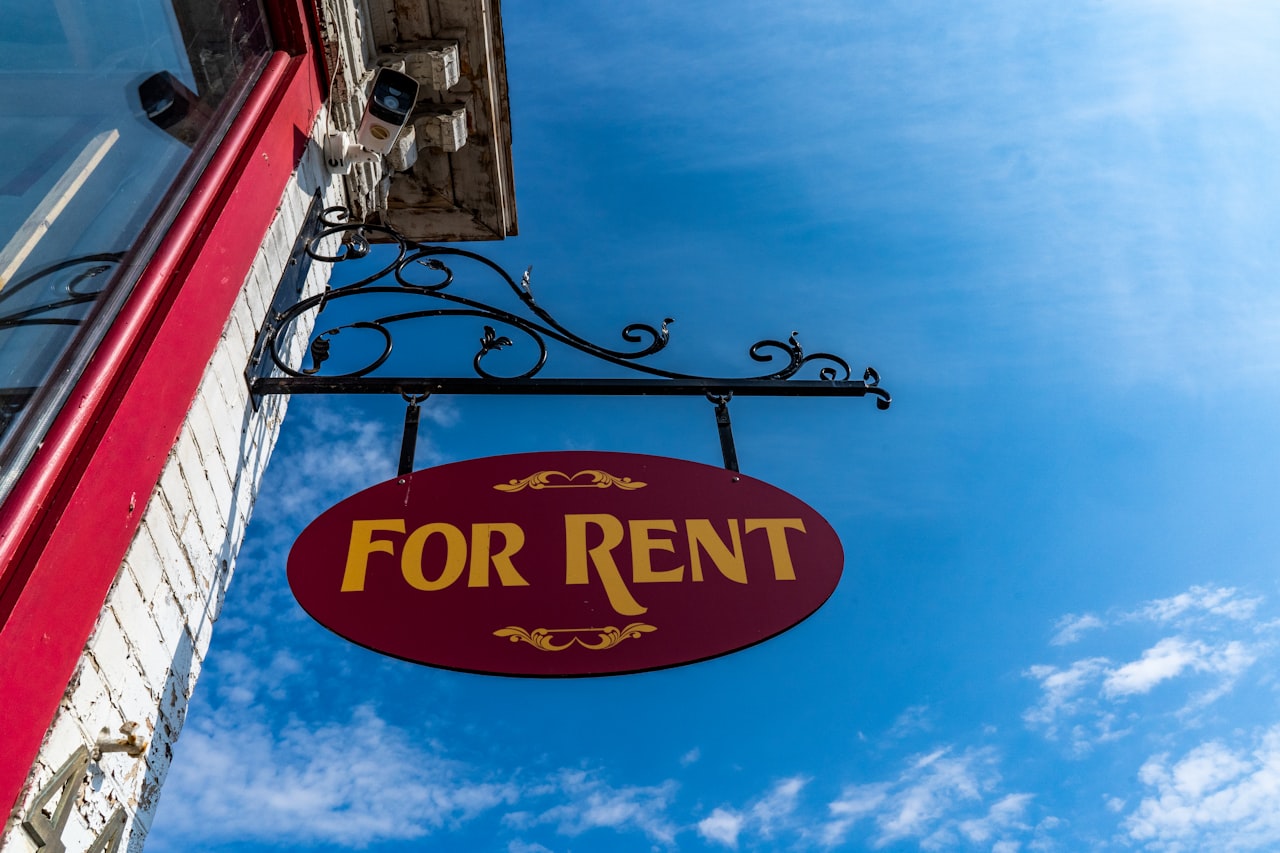When it comes to finding a place to live,
San Francisco is hard to beat. The city has something for everyone, whether they’re looking for an urban adventure or a more laid-back lifestyle. When it comes to leasing options, you and your prospective tenants have a lot to choose from. In this article, we’ll discuss everything you need to know about San Francisco leasing options.
We’ll cover the different types of leases available, the pros and cons of each, and how to choose the right lease for you.
If you’re a landlord thinking about
leasing your property in San Francisco, this article is a must-read. Tenants curious about leasing options will find a lot of value here as well.
Most Common Types of Leases
There are many different types of leases available in San Francisco. As a landlord, it’s vital that you make the choice that works best for your business model. It’s also important to consider what tenants may be looking for in a lease.
Generally, landlords offer either a fixed-term or month-to-month lease. Here’s what these two popular lease options might look like:
Fixed-Term
This is the most common type of residential lease, and the most beneficial for people who plan to lease a property for a set period of time. A fixed-term lease is usually most beneficial for property owners, too.
Fixed-term leases guarantee tenancy and monthly rental costs. Most fixed-term leases last for 6-12 months, although some property owners (and tenants) prefer a two-year lease.
One disadvantage of a fixed-term lease is that the tenant may face a penalty if they break the lease. As a property owner, you’ll need to consider how to handle your expenses when a tenant breaks a fixed-term lease.
Month-to-Month
Sometimes referred to as a periodic lease, a month-to-month lease allows the landlord and the tenant to cancel without penalty. That is if both parties give proper notice of usually 30 days.
The written terms of the lease constitute proper notice. Before signing a month-to-month lease, both tenant and landlord should know precisely how far in advance they’ll need to give notice about vacating the property, rent increase, or other upcoming changes.
For a tenant that knows they’ll need long-term housing, a fixed-term lease is usually the best choice. Tenants who only need temporary housing should explore month-to-month lease options.
When You Are Leasing to Roommates
There is another of lease option that you’ll likely encounter if you decide to lease your property to roommates. When two or more people lease a property as roommates, you’ll want to consider using a joint lease.
In a joint lease situation, each roommate signs the lease, which binds all parties to the lease terms. That means the roommates are responsible for following the rules and paying the rent—together.
Before signing a joint lease, it’s critical to understand what happens
if one roommate defaults on their part of the rent. In most cases, a landlord can evict all the roommates if one doesn’t pay their share and the other roommates can’t cover it.
Tenants will need to understand that even though they’ve paid their part of the rent, most landlords require the entire amount to meet the terms of the lease.
The benefit of a joint lease for your prospective tenants is that they can share the financial responsibilities with another person. If the joint lease is with a reliable roommate, it can help build a tenant’s credit score and rental history.
Issues with a joint lease arise when the chosen roommate(s) is not reliable or doesn’t follow the rules.
Landlords and leasing agencies can run a background check for each tenant on a joint lease. Background checks and other tenant screening tools usually unveil things like bad credit, past evictions, and previous criminal history.
What About a Sub-Lease?
A sublease in real estate is when a tenant rents out all or part of their leased property to a sub-tenant. The sub-tenant pays rent to the original tenant, who in turn pays rent to the landlord. The original tenant is also still responsible for any obligations in the lease agreement, such as maintenance and property damage.
Sub-leasing comes with both advantages and disadvantages for property owners.
Pros:
- No vacancies or lost rental income
- The original tenant finds the subtenant
- Tenant handles subtenant
Regarding tenant responsibility, whether the original tenant is responsible if the subtenant doesn’t pay rent or damages the property depends on the terms of the subleasing agreement.
Cons:
- Inconsistent screening procedures
- Property damage
- Lease violations
- Eviction
Sub-leases can be risky for landlords and tenants. One way to mitigate risk is to work with a San Francisco leasing agency.
Generally, leasing agencies handle sub-leases in the same way that they handle fixed-term and month-to-month lease agreements.
The main difference is that the sub-lease is between the tenant and the sub-tenant. This means the leasing agency is not a party to the agreement. Even so, the leasing agency can review and approve the sub-lease agreement.
The agency will also collect the rent from the tenant and may require the tenant to give proof that the rent has been paid by the sub-tenant.
Who Writes a Lease?
Leases are legally binding contracts between landlords and tenants, so it’s important that they are written correctly. The lease should be clear and concise, and it should include all the essential components of the agreement.
Residential leases usually include the following:
- Length of the lease
- Due date for rent
- Acceptable payment methods
- Late fees and penalties for missed rent payments
- Responsibilities for paying utilities, water, and trash
- Number of people allowed to live in unit
- Procedures for renewing or terminating the lease
Leases may specify whether tenants can
have pets. If you require tenants to carry insurance, you should consider adding a clause to the lease about the required coverage.
Finally, leases should include rules and regulations about quiet hours, visitors, parking, and use of common areas.
The leasing agency will keep a copy of every lease on file, including any amendments or addendums. Landlords will want to have a copy for their records.
What Is the Best Lease for You?
The best lease for a property owner or landlord depends on individual needs and preferences. Longer term leases—one-year or two-year—offer the most security. They guarantee a steady stream of rental income over a set period of time.
Shorter term leases, such as month-to-month leases, can give more flexibility for landlords if they need to make changes to the rental agreement.
Ultimately, the best lease for a landlord will depend on their specific situation.
What about Prospective Tenants?
While tenants have different needs than landlords, finding the best type of lease depends on many of the points we’ve discussed up to now. Tenants should have a good idea of how long they intend to stay in the area and, of course, will need to understand any budget limitations they may have.
Whether you’re a landlord or a tenant looking for a new home, a
professional leasing agent in San Francisco can help you figure out your lease options.
Why Work with a San Francisco Leasing Agency?
There are many benefits to using a leasing agency to handle your
San Francisco leasing needs. The most obvious benefit is that working with a leasing agency can save you time.
If you are a busy landlord with many properties, it can be not easy to keep up with the day-to-day tasks of managing leases. A leasing agency can take care of all the paperwork and do the legwork involved in leases, freeing up your time to focus on other things.
Leasing agencies have experience dealing with different types of tenants, so they can screen potential renters and help you find tenants who are likely to be responsible and respectful of your property.
This can save you a lot of headaches down the road, as dealing with problem tenants can be time-consuming and stressful.
Many leasing companies in San Francisco use specially trained leasing agents. Leasing agents are professionals responsible for finding tenants for a property and managing the leasing process.
Another part of a leasing agent’s job is advertising available units, screening potential tenants, negotiating lease terms, and collecting rent. Imagine the time a landlord can save!
The Best San Francisco Leasing Options
Choosing the right lease for your unique needs as a landlord could mean the difference between running your property smoothly or putting out fires daily. You don’t need to figure out your San Francisco leasing options alone.
At RayRealtor.com, we specialize in helping landlords and prospective tenants understand the different types of lease options in San Francisco. Let us help you decide on a lease type that will best fit your needs.
Contact us, and let’s talk!










